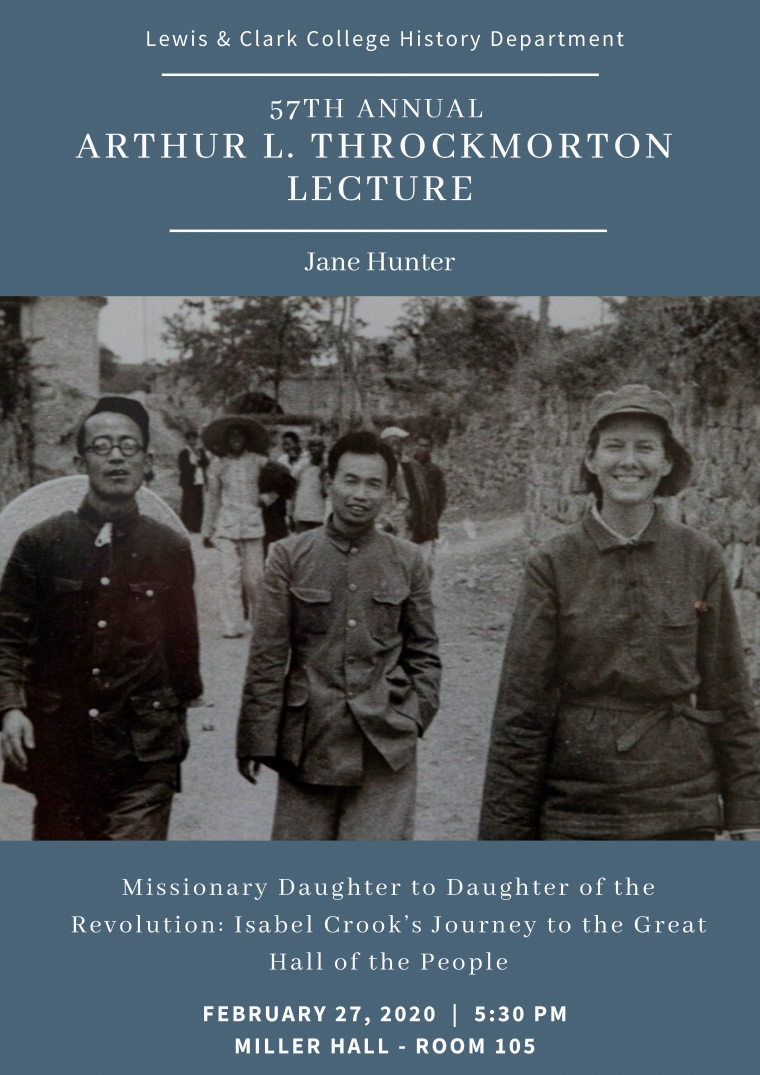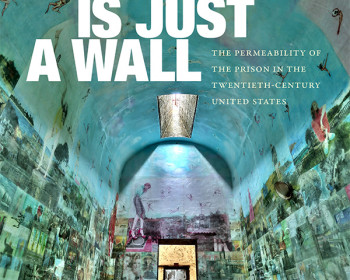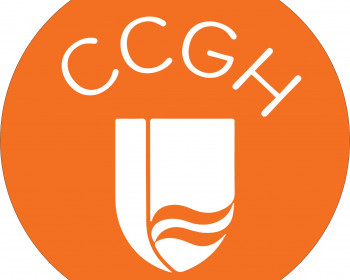Review: 57th Annual Arthur L. Throckmorton Memorial Lecture
Open gallery

On Thursday, February 27th Professor Emerita of History Dr. Jane Hunter delivered the 57th annual Arthur L. Throckmorton Memorial Lecture. Her lecture “Missionary Daughter to Daughter of the Revolution: Isabel Crook’s Journey to the Great Hall of the People” covered the life of Isabel Crook (now an impressive 104 years old), the daughter of Canadian missionaries in China who left behind the Protestantism of her parents to become an ardent communist. Dr. Hunter focused on the identity of children of missionaries, choosing to classify them as Third Culture Kids (TCKs) rather than as second-generation immigrants. She argued that the term TCK is more befitting children whose parents sojourned in a foreign country for significant periods of time rather than immigrating because those children are exposed to not only the culture of their parent’s homeland, but also that of their adopted homes. These children, Dr. Hunter stated, have a unique capacity for global thinking and connection, and challenge the supremacy of the nation state in identity formation.
Dr. Hunter’s lecture began with an outline of the lives of Isabel’s parents and Isabel’s childhood. She then moved on to Isabel’s life as a young adult during the 1930s and ’40s, recovered through letters and discussions with Isabel. As she began to explore communist texts in the late 1930s and early ’40s, Isabel was also seeking to belong. Her work with the Chinese Christian Rural Research & Action Team during this time provided her with a sense of belonging. Belonging was to become the major theme of Isabel’s life as she married David Crook, a British Jewish communist and moved to England during the Second World War. On her return to China, she struggled again to earn the trust of the Chinese Communist Party as she worked to establish the Beijing Foreign Studies University. Isabel and David were imprisoned during the Cultural Revolution of 1966-76, but remained loyal to the Chinese Communist Party due to their profound sense of belonging. What enabled Isabel’s conversion from Christianity to Communism was not a sense of cosmopolitanism, but rather similarities between the two doctrines that made conversion logical and easy.
The second, shorter portion of Dr. Hunter’s lecture covered her research on a single letter from 1939 belonging to Muriel, Isabel’s mother. There were multiple copies of this letter, which was ostensibly written by a guerilla girl fighting the Japanese in the north of China and sent to her cousin, a secretary with the Christian organization Muriel worked for. Dr. Hunter’s search for the identity of this secretary, Yu Zhiying, revealed that Muriel herself had dabbled in communism, making winter clothes for communist soldiers in 1939 and going so far as to say that communism was “wonderfully Christian.” This final connection between Isabel and the Chinese Communist Party illustrated not only her desire to belong, but also her identity as a daughter.
The lecture was well-attended and enthusiastically received. History major Linus Jakobson ’20 responded well to the lecture, stating: “It was a brilliant lecture. I really enjoyed learning about
Isabel Crook’s life. I’ve never heard of this woman [Crook] before … I’d love to see more lectures of this type.”
Aidan Bennett ’21
History is located in Miller Center on the Undergraduate Campus.
MSC: 41
email history@lclark.edu
voice 503-768-7405
fax 503-768-7418
Chair Reiko Hillyer
Administrative Coordinator Amy Baskin
History
Lewis & Clark
615 S. Palatine Hill Road MSC 41
Portland OR 97219

